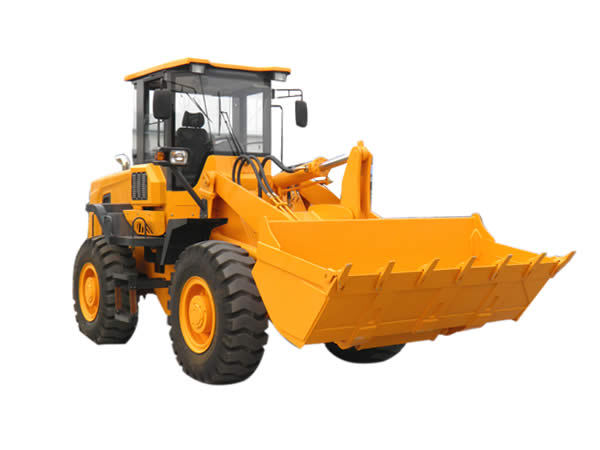
The shovel and handling of the loader is carried out by the movement of its working device. The loader working device is composed of a bucket 1, a boom 2, a link 3, a rocker arm 4, a bucket cylinder 5, a boom cylinder 6, and the like. The entire work unit is hinged to the frame 7. The bucket is hinged to the bucket cylinder through the connecting rod and the rocker arm for loading and unloading materials. The boom is hinged to the frame and the boom cylinder for lifting the bucket. The flipping of the bucket and the lifting of the boom are hydraulically operated. [1]
When the loader is working, the working device should ensure that when the bucket cylinder is locked and the boom cylinder is lifted or lowered, the linkage mechanism makes the bucket move up or down or close to the ground to avoid the bucket tilting and spilling the material; When the arm is in any position and the bucket rotates around the hinge to perform the unloading, the bucket inclination angle is not less than 45°, and the bucket can be automatically leveled when the boom is lowered after the unloading. There are mainly seven types of structure types of loader working devices at home and abroad, that is, according to the number of components of the link mechanism, they are divided into three-bar type, four-bar type, five-bar type, six-bar type and eight-bar type; According to whether the steering of the input and output rods is the same, it is divided into a forward rotation and a reverse linkage mechanism. Earthmoving loader bucket structure, its body is usually made of low-carbon, wear-resistant, high-strength steel plate. The cutting edge is made of wear-resistant medium-manganese alloy steel. The side cutting edge and the reinforcing gusset are all resistant to high strength. Made of ground steel. The shape of the bucket cutter is divided into four types. The choice of tooth profile should take into account factors such as insertion resistance, wear resistance and ease of replacement. Tooth-shaped taper teeth and blunt teeth, the wheel loader mostly uses pointed teeth, while the crawler type boot uses blunt teeth. The number of teeth depends on the width of the bucket, and the pitch of the bucket is generally 150-300mm. The tooth structure is divided into two types: integral type and split type. Small and medium-sized loaders are mostly integrated, and large loaders often adopt split type due to poor working conditions and serious tooth wear. The split tooth is divided into two parts, the basic tooth 2 and the tooth tip 1. After the wear, only the tooth tip needs to be replaced.

Previous: Loader development trend
Next: Advantages of the loader